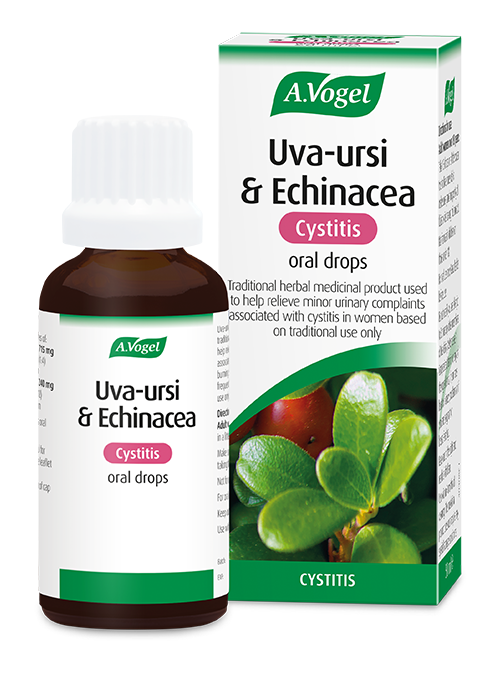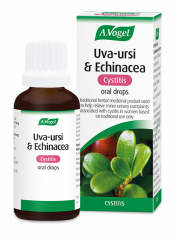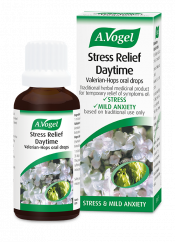Could stress be triggering UTIs?
Suffering from recurrent cystitis can be frustrating, especially if you don’t understand what the root cause is. As with many conditions, understanding the cause is often a useful first step in managing the symptoms – otherwise, how would you know where to start?
Typically, cystitis is caused by an infection and in which case, bacteria is thought to be at the root of the problem.
Therefore, whilst stress isn't often assumed to directly cause UTIs, it can have a negative impact on your immune system, therefore making you more susceptible to infections. Stress is also thought to have a major influence in cases of interstitial cystitis, meaning it could worsen urinary tract symptoms, even if an infection is absent.
So, although stress may still have some part to play if recurrent bacterial infections are your problem, in many cases, working towards altering diet and lifestyle habits (drinking more water for one!), or with the help of some herbs and antibiotics in more severe cases, you could help to keep some of those tricky infections at bay.
However, it must be said, when there is no infection present, for example in the case of interstitial cystitis, the root cause can often be a little more complicated, and as I'll explore in more detail today, it's certainly possible that stress could be having an impact.
How could stress cause UTIs?
The connection between stress and cystitis isn’t one that's so commonly recognised by the conventional medical community, although research is ongoing and, for many naturopaths, the connection is a little clearer. There are a number of possible mechanisms at play when it comes to stress and cystitis:
1. When you are stressed your eating habits can change
In times of stress you’re more likely to make poorer choices when it comes to your diet. Water is less likely to be top of mind and you might forget to hit your 1.5l daily quota if you’re rushing around frantically! Plus, you’re also much more likely to guzzle drinks higher in sugar, caffeine and alcohol and opt for convenience foods to keep you going if you’re feeling under pressure. This is a bit of a protective mechanism since your body assumes you need to have glucose readily available in the blood stream to fuel your 'fight or flight' requirements.
Unfortunately, these ingredients are all pro-inflammatory, plus you may risk becoming more dehydrated or fuelling any niggling infections further.

2. Being stressed weakens your defences
In times of stress your immune functions can suffer making you more susceptible to bugs. We need your immune system to be in tip top condition to help detect any bad bacteria that could potentially take hold and cause an infection.
3. Stress fires up your sympathetic nervous system
In times of stress your sympathetic nervous system becomes dominant, which can have some quite direct, negative effects on your digestive system and urinary tract.
In times of stress, your body strives to empty your bladder and clear your bowel in order to allow you to be in the best physical condition possible (for running away or fighting which is what your body assumes we need to be preparing for in times of stress!).
This means that you’ll most likely find you need the toilet more often than normal, plus often more urgently and, if chronic stress is a problem, then this can be problematic longer-term and cause ongoing irritation.
4. The chemical effects of stress
As well as the more physical effects of stress, could there also be a chemical influence? In short, yes. In times of stress we release a number of ‘stress’ hormones including corticotrophin releasing factor (CRF) and research has suggested that this could play a part in symptoms of interstitial cystitis and having an overactive bladder. (1)
5. Stress can modulate your perception of pain
As well as the physical and chemical influences of stress, it seems that your sensitivity to pain can also increase during times of stress.
This means that unfortunately you may be much more aware of different niggles, and feel more sensitive to pain and discomfort. (2)
Some top tips for managing your symptoms
Now that we’ve explored some of the possible links between stress and cystitis, it’s time to outline some ways in which you can help yourself! With some of my tips, you can help to get those symptoms under control:
1. Firstly, tackle the underlying cause – stress:
Dealing with stress is often easier said than done, but often a multidisciplinary approach can be useful. Some advice from me is as follows:
- Speak up. Whether it’s with a close friend, a colleague or a healthcare professional (this may depend on the root of the stress too), speaking about your problems is a must. Not only will this in itself help to release some of the building tension, but it’s likely that your confidant will be able to help you think more clearly and offer some solutions or at least point you in the direction of someone who can. Some practical steps and small changes can often make all the difference

- Adopt some relaxation techniques. It’s important that you take time to relax. We need your calming parasympathetic nervous system to take over and instil some order during some of your waking hours. Mindful stretching, breathing techniques, taking a warm bath, listening to some calming music or settling down with a good book, are all perfect ways in which to let that happen. Take at least 30 minutes out of your day to focus on relaxing and taking part in something that you enjoy
- Get some fresh air. Getting outdoors is also a great way to help manage stress. The fresh air is a good excuse to breathe more deeply which is instantly calming (especially trying to consciously employ nasal breathing, plus, really emphasising the exhaling phase), plus being around nature can help support your mood too! Doing exercise outside is also a great option and means you’ll release calming, feel-good endorphins which are bound to leave you feeling more relaxed
- Reduce your use of habitual stimulants. People often underestimate the power of foods or drinks when it comes to them ramping up your stress or anxiety levels, and these can easily become a part of your daily routine in our modern-day, hectic lives. Refined sugar, alcohol and caffeine can all have effects on your innate stress responses and blood sugar levels, and can easily leave you feeling jittery and anxious as a result. Make some simple swaps and feel the difference
- Try a herbal remedy – Sometimes we need a little helping hand to get stress or anxiety under control and calming herbs such as Valerian or Hops can help to do just that. Try our convenient Passiflora Complex Spray which combines the herbs passiflora and lemon balm, plus the mineral zinc, in order to help support relaxation.
2. Support your immune system
If you’re all stressed out then it’s likely that your immune function could be suffering as a result. Recurrent head colds and cold sores are more readily accepted as signs of people being ‘run down,’ but we now know that cystitis may be an indicator to look out for too. Help fend off any cold and flu symptoms with some Echinaforce Echinacea.
3. Target the symptoms of cystitis or UTIs with Uva-ursi & Echinacea
If an infection is apparent at the moment, then Uva-ursi & Echinacea complex can help to target those symptoms more directly.
Take this up to 3 times daily, whilst keeping your intake of water up throughout the course of the day.











